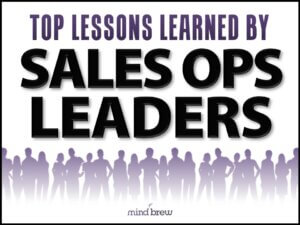During World War II, the U.S. had an extremely valuable intelligence resource—German immigrants, many of them German Jews who had fled their homeland as Hitler rose to power, who joined the US Army.
Recognizing the value of having operatives who understood the German language and culture, U.S. Army Intelligence set up a secret training facility in Maryland called Camp Ritchie (later Fort Ritchie). In all, 15,200 young men trained at the facility. They became known as the “Ritchie Boys.”
After the war ended, military investigators determined that approximately 60 percent of the credible intelligence gathered in Europe resulted from the work of the Ritchie Boys.
What made these immigrant soldiers so successful at intelligence-gathering?
Well, for one, they were highly motivated. Most were horrified by the actions of the Nazis, and many had joined the war effort specifically because they wanted to save their friends and family who still lived in Europe. In addition, their knowledge of the German language and culture certainly made it easier to build rapport with captured enemy soldiers.
But the Ritchie Boys had also learned a specific interrogate technique known as “superior knowledge” that they used to great effect. At Camp Ritchie, the young soldiers studied the minutiae of the German way of war. They memorized all the intelligence the Allies had on hand—all in preparation for their interrogation sessions.
When the Allies captured a POW, one of the Ritchie Boys would meet with him and unleash a flood of information about German activities. Overwhelmed, the POWs came to believe that the interrogator already knew everything there was to know—maybe even more than the German knew himself. Since the U.S. already knew everything, it seemed like no big deal for the lowly soldier to talk candidly about what he knew—especially if it seemed like it would help the prisoner get special treatment or avoid punishment.
The Ritchie Boys used facts to extract more facts. And over time, the Ritchie Boys gathered information that helped turn the tide of battles and even the war.
As a sales ops professional, you are in a vastly different situation. You aren’t at war with anyone, and you aren’t taking any prisoners (we hope).
But you are involved in intelligence-gathering (or at least you should be).
If your team can glean key insights from the minds of prospects, you’ll have significant advantages. For example, imagine if you knew:
- What barriers to buying are lurking in prospects’ minds?
- What causes prospects to believe that they might need what you have to offer?
- How do prospects gather the information they need to make a buying decision?
If you know this information before you meet with a prospect, you can use a version of the “superior knowledge” technique to help close the deal. If you already seem to know what the prospect is thinking, you’ll gain their trust, and they’ll be more willing to share additional information and eventually commit to the sale.
So how do you get these key insights?
Start with 17 Powerful Insights That Improve Close Rates & Margins. It provides a road map that directs you to the information you want to have.
Next, take a look at Step-by-Step Marketing Research for Strategic Selling, which lays out a tried-and-true process for gathering that valuable intelligence.
Follow it up with Targeting Your Most Profitable Prospects, which will help you turn that intelligence into an actionable plan to win more business.
And if this blog has whet your appetite for information about the Ritchie Boys, you might want to check out the 60 Minutes interview with several Ritchie Boys or books like Sons and Soldiers, They Dared Return, and Ritchie Boy Secrets.














